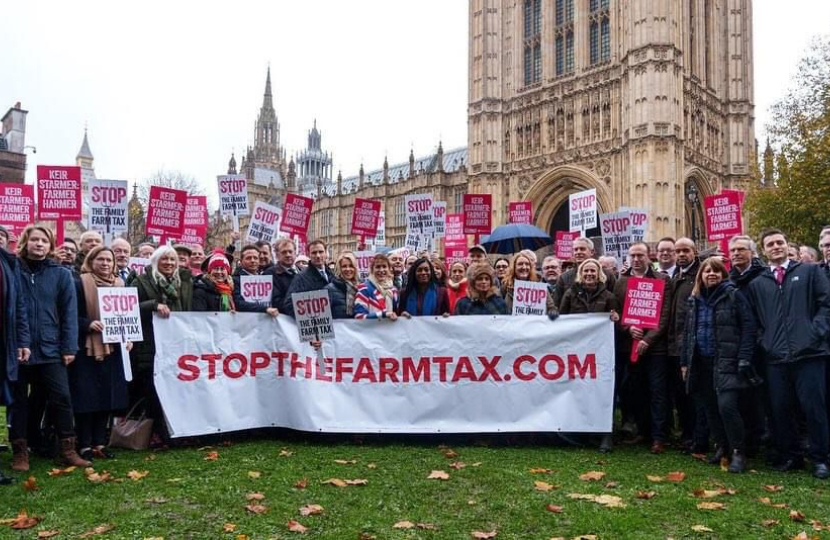
As I spoke to Radio Norfolk ahead of the farming rally in Westminster on Tuesday snow was falling outside. Not that that bothered the thousands of farmers who came to protest against Labour’s plans for a family farm tax and who work in all weathers.
Family farms grow our food and are custodians of our countryside. Agricultural property relief was introduced in the 1980s precisely to protect family farms from being broken up on death. Fundamentally the plans to change this set out in the Budget are a breach of trust and break explicit promises given before the election that the government wouldn’t remove this protection.
Farmers I’ve spoken to locally and those who came to Westminster have said the proposals represent a sword of Damocles for family farms. Others have said it would be a hammer blow to their hope for future generations to continue in farming. The plans are creating great concern and anxiety among groups of people who may face the stark choice to breaking up their farms because the ability to generate income to pay such bills is very limited when the average return on investment in 0.5% in the sector.
For consumers, the impact could be to add to the costs of producing food – meaning higher prices. Our food security could be weakened just as there is increasing support for more home grown produce.
I hope even now the government will rethink, withdraw these plans and consult on changes to deal with any abuse they are claiming to target – such as introducing a qualifying period of ownership or increasing the threshold. Importantly, it is not only the direct impact on family farms, but all the businesses that supply machinery, build grain stores, or otherwise support the farming eco-system that could suffer.
It is only three weeks since the Budget and the damaging impact is becoming clearer. More than 70 retailers including Tesco, Sainsbury’s, Lidl, and Aldi have warned this week that the increases in employer national insurance will lead to job losses and price rises. Hitting lower paid roles with employer NI for the first time will hurt particularly part time workers. All told, they estimate the total cost of budget measures could be £7 billion a year for the sector.
It is a similar impact for the leisure and hospitality sector that is so important locally. I recently met a business owner in the nighttime economy worried about the higher costs from the increased business rates bars, clubs, and other venues will face. Part of the challenge is the government is bringing in many changes from April so companies have little time to plan.
And while the private sector faces higher bills so do charities, GP practices, care homes, and others. The Health Secretary following pressure has said government will provide clarity soon on any mitigation that government plans to provide. But any further delay makes it hard for organisations to plan. Nurseries are already setting out that they will have to charge higher fees.
Meanwhile, growth in the economy is forecast to be lower than it was before the Budget and the general election. Inflation is forecast to be higher as a result of the Budget and figures this week saw it rise to 2.3%. The Prime Minister and Chancellor need to listen and correct course.

